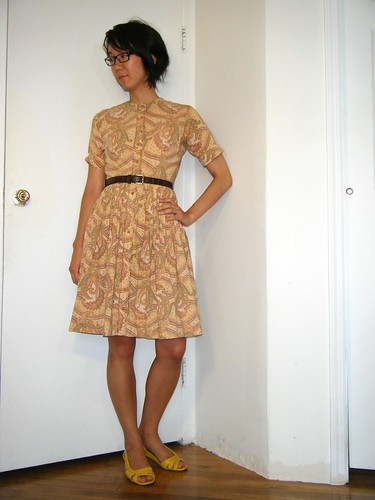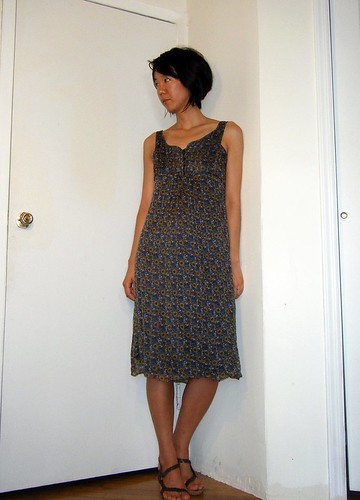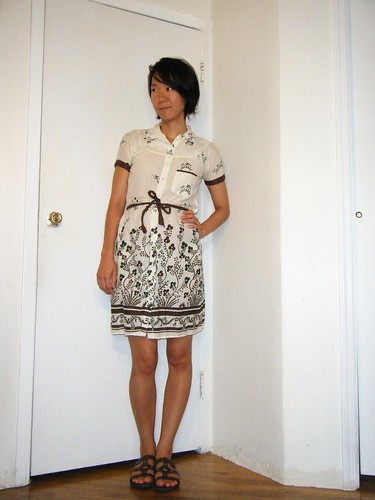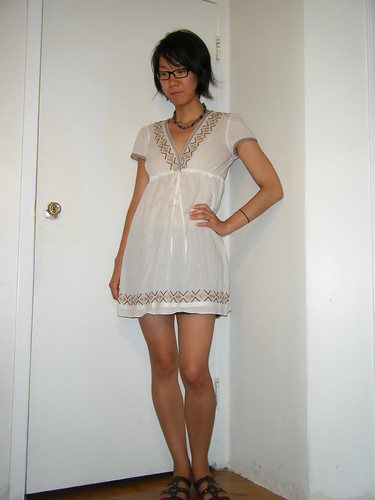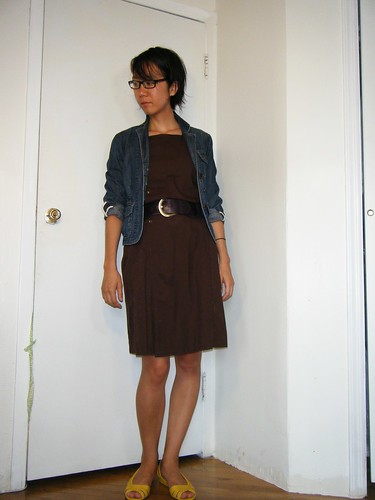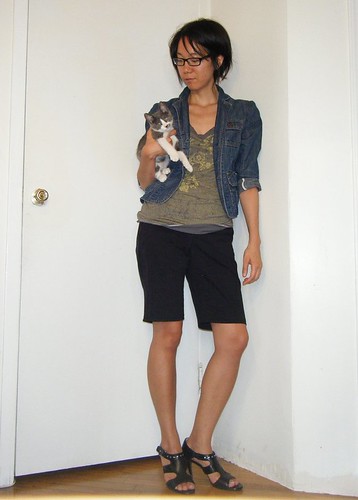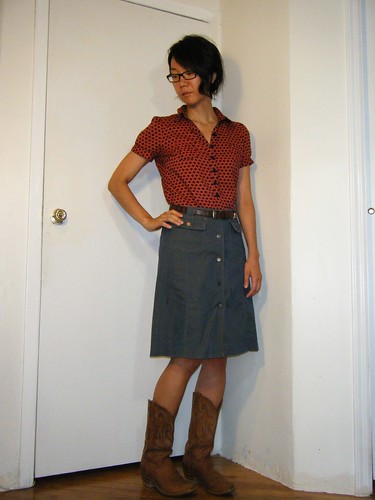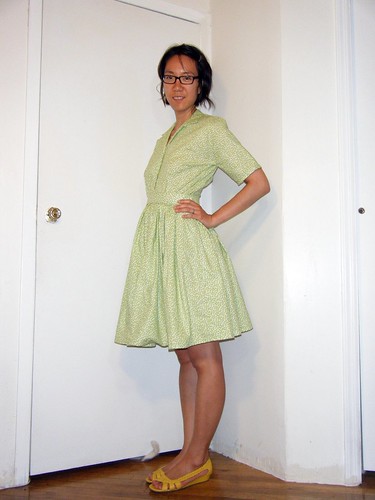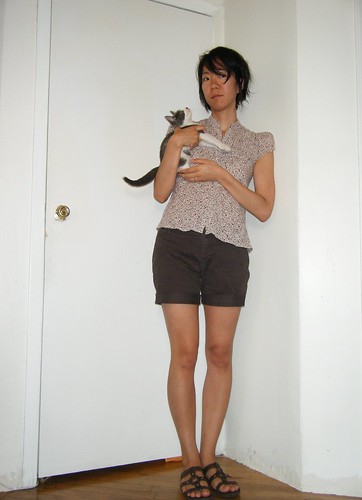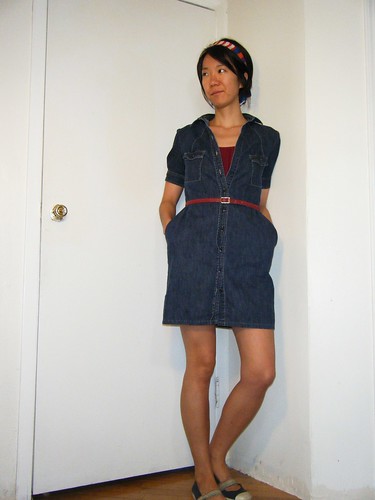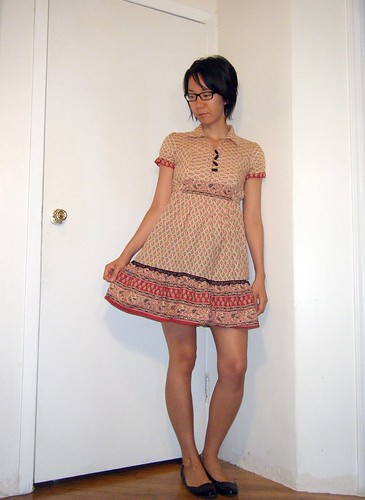
What does goofy Goldy the Gopher have to do with ethics and clothing?
I know that usually I gripe and moan about crises and misogyny, but I also love a silver lining now and then. Bloggers have talking about sustainable consumption (although I prefer the term ethical, because I always think environmental when I think sustainable, but I am also interested in labor and human rights aspects of production) for a while now, and it's often easy to get into a depressed funk.
I am a big supporter of Students Against Sweatshops (I started school just after the bulk of their campaigns were over but I was involved in activisty campaigns with many of their "veterans"). It's not a perfect organization (a pretty darn good one), but they recognize that globalization and overseas production are facts of modern economic life, and while we can't change them, we can try to influence institutional consumers to make a change. I care about my individual consumption choices, I know that I am a drop in the bucket, while universities and other organizations have much more bargaining power.
This weekend, the NYTimes
wrote a piece about how Knights Apparel opened a "model" factory in the Dominican Republic that is organized around principles of living wages and ethical production. The best part is that the price per T shirt at living wage, rather than minimum wage, is a mere $0.80. I think we can all dig down and cough up that amount for ethical production. (Knights will be selling these shirts at a lower profit margin, too. I could kiss the CEO, John Bozich. You will not likely ever hear me say that again.)
This lovely women is thrilled to have landed a job at Alta Gracia, which will be producing clothing for licensed University sportswear. Because of this job, she was able to secure a small loan to build a sturdy nice house (with toilets) for her family.
This makes me happy in a way that stories of
microcredit do not. I know that microcredit is popular with many prominent people, but the problem with microcredit is that giving capital to a few small business is great, but you basically move money in impoverished places. Don't get me started on the high interest rates too. A really common microcredit business is a restaurant or a small shop. All this means is that the lucky person who got the microcredit loan gets all the money in the village/neighborhood. It's just an internal redistribution. What impoverished communities need is a steady in flow of external money. The woman working at Knights now takes her income and hires builders, feeds her family, and those folks use that money within their community. It's a big difference to provide
externally funded, salaried jobs.* (For feminist economists' take on this issue, see
here).
I am unimpressed with companies, like a certain fruit-monikered dress company, that blah blah about their ethics by pointing to the fact they donate to microcredit. Why not follow Knights Apparel and open up factories with the highest possible working and wage standards?
Shopping diet or no, I would be so happy to spend my money here.
Anyone else going to go out of their way to buy Alta Gracia's version of your Alma Mater's gear? Check to see if your school is a member of the Workers' Rights Consortium
here:
And yes, reading about this happy young factory worker makes me want to STFU about my housing woes. Sigh. I am a spoiled, Global North Brat.
edit: For some good resources, check out the following links:
Good Clothing CompaniesInterrobang Anonymous' list of resources*I am not saying that we should give to microcredit, as I know that many microcredit loans help the quality of life for some people. But it's not how any country has or could possible transition to a more developed economy, if you're into that kind of thing.

